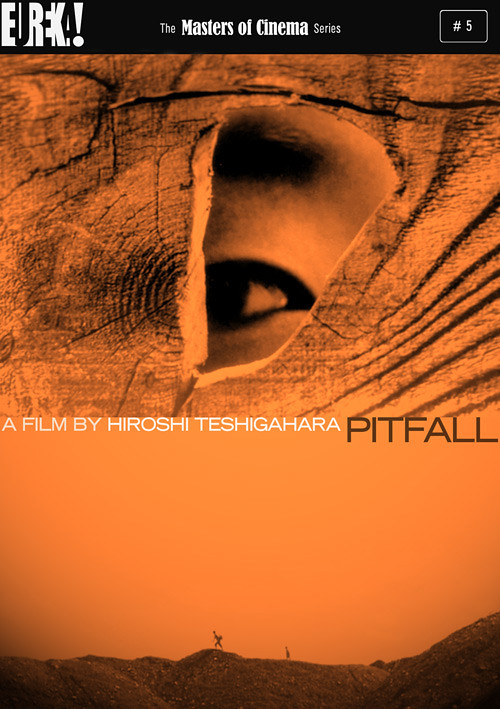
It's funny that the first time I saw this the doppelgänger element stuck with me so well but I'd forgotten entirely about the ghost-story element. In fact the Criterion essays describe this more than once as an "anti-ghost story."
Man, Hiroshi Teshigahara's trilogy of Criterion-released films -- this, Woman in the Dunes and The Face of Another -- are films I'm always trying to convince others to watch. Seems like nobody knows about this guy. Japan had their own Kafka (Kobo Abe), and that guy wrote some films, and those scripts were directed by a master of low-key surrealist-drama! Of course they're amazing, and of course I love them.
It's great how our hero seems at first obsessed with justice for his murder -- and how the other ghosts wave this off coolly, saying everybody thinks like that at first, and warning that the more he learns the more troubled he'll be -- but in the end all any of the ghosts want is some kind of explanation for the cruelty and suddenness of their own demise. But there are no answers for them, no concrete ones; life is what it is, and forces bigger than you and tangential to your life will one day brush up against you and snuff you out, and there won't be any reason for it that you'll ever understand. Plus, as the other ghosts point out, once you're dead what does it even matter what the reasons were, or if the living discover some kind of truth about you? My friends, this is textbook absurdism right here, and I love every existentially cynical moment of it. Admittedly, that's not everybody's flavor, but for those it is, it's a wonder they haven't seen these films.
There is also the wonderful recurring theme of doubles here, binary pairings throughout. Ghosts to their bodies, the man and his double, the two unions at war, the man and his son. Almost everybody in this movie is partnered up so we can chart a continuum between poles. The three notable exceptions I can think of are the boy at the end, cut loose from his father (and his father's double: how confusing that must be, plus then to witness four murders!); the woman for much of the story, and look how psychically adrift she was for being without the "friend" she expected to write her a letter and save her from purgatory; and of course the man with the white gloves, the agent of chaos, the true killer and schemer. I could postulate all day about what or who exactly the man in all white represents, but the very point of the whole thing is -- all mysteries and wonder aside -- I can never know.

No comments:
Post a Comment